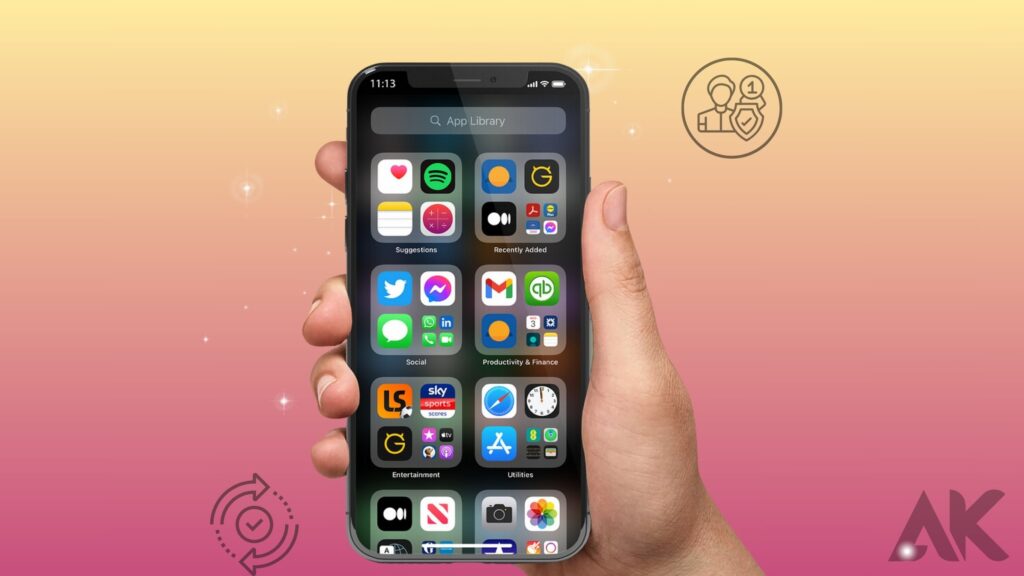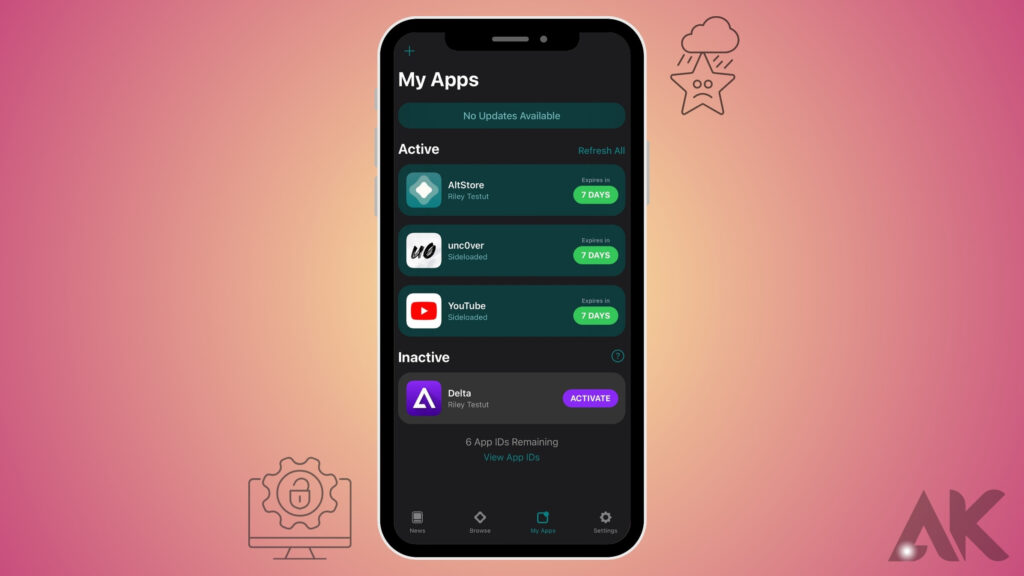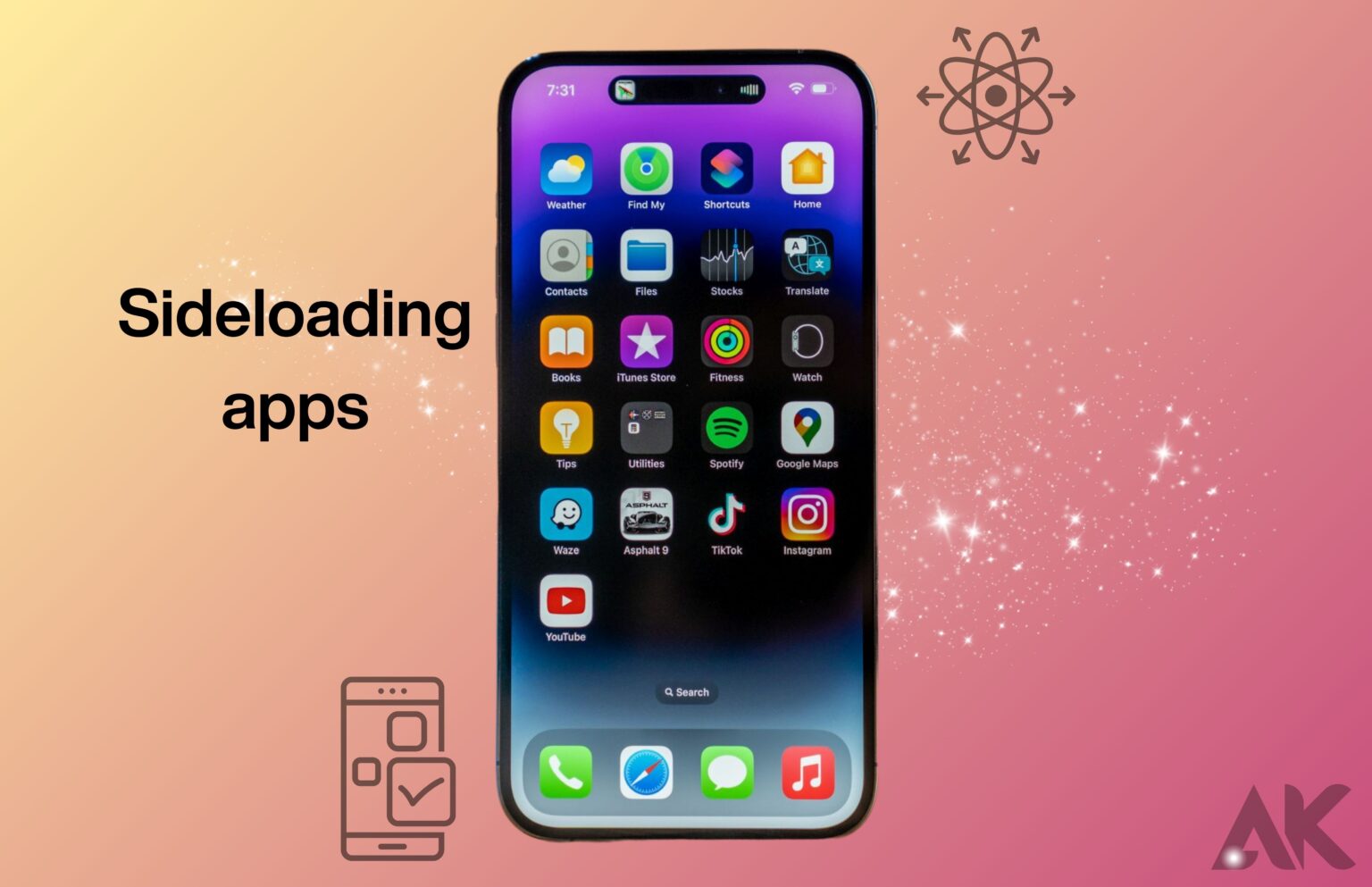The ability to sideload apps has been a long-awaited feature for iPhone owners in the dynamic world of technology. Has the long-awaited ability to sideload applications on an iPhone finally arrived? To help iPhone owners get the most out of their devices, this detailed book explores the complexities of sideloading, offers professional insights, and answers important concerns.
A huge update is coming to the iPhone—but only for some individuals.

This year, the iPhone is going through significant revisions. Several upcoming iOS features, such as support for alternative or third-party app stores and the ability to sideload programs, were revealed by Apple on January 25.
These features have long been unavailable on the iPhone but have been available on Android. You can download APK files from any website that has them available, but the Play Store is the main way to download programs on Android. You can also use third-party app shops, such as Amazon’s App Store or Samsung’s Galaxy Store. Later this year, with the introduction of iOS 17.4, users of the iPhone will finally have the ability to perform comparable things.
While it’s great news that the iPhone may now access third-party app stores and sideload apps, there is a caveat. This feature is exclusively available to iPhone users in the European Union. Presumably, until comparable legislation compels them to do so, Apple will not announce any intentions to bring third-party app stores and sideloading to iPhones in other markets anytime soon.
The only reason Apple is making these modifications is to comply with new legislation in the EU, especially the EU’s Digital Markets Act (DMA). The business has a long history of opposition to app sideloading and rival app stores. This is Apple’s preparation for the DMA, which will take effect in March.
When I go to sources other than the Apple App Store, how will I be able to download apps? There are still many regulations and security precautions, as one would anticipate from Apple.
Imagine that you’ve just discovered an app store that you like. The marketplace can be downloaded from the official website. If the app store you wish to use has already been reviewed and approved by Apple, then this will be possible. The app store or marketplace must be granted permission to download and install applications on the iPhone by the user after their download.
Apple will no longer meddle if you complete those steps. From that alternative app shop, you can download any software you like, including ones that the official Apple App Store doesn’t allow. You can also change the default app shop from Apple’s App Shop to another third-party app store if you prefer.
However, that is not all. Additionally, Apple is modifying its policy about in-app purchases of apps from third-party app shops. There is no cost to developers who opt out of Apple’s in-app payment infrastructure in favor of third-party solutions. On the other hand, developers can pay 3% to utilize Apple’s mechanism. This is great news for services like Xbox Game Pass, and it comes at the same time that Apple is enabling applications to handle game streaming for numerous titles.
Soon, there will be a lot more flexibility in how app downloads are handled for iPhone owners in the EU. These updates will be included in the March release of Apple iOS 17.4.
Apple’s sideloading woes

With Apple, the European Union didn’t end at USB-C. Brussels officials are pushing for more competition in the tech industry by requiring all enterprises to make their systems accessible to other developers and businesses. Apple has always had a stranglehold on what users can and cannot install on their iOS devices, making them prime targets for the Digital Markets Act (DMA).
Bypassing an official app store, like Google Play, and installing third-party apps or entire app stores from the web is known as sideloading. By persuading customers to employ this method, developers can avoid paying exorbitant fees to app stores and bypass them altogether. However, malicious actors can more easily deceive users into downloading malware onto their devices due to sideloading.
Sideloading has always been possible on Android, but Google has gradually tightened limitations for security reasons. Apple’s method is far more stringent. Since 2010, businesses have had the option to integrate their app stores onto iOS devices, allowing employees to access specialized applications. Additionally, developers can sideload programs, which is essential for testing. You can’t easily obtain apps that aren’t available in the App Store on iOS unless you’re ready to jailbreak your device or are part of that kind of organization.
Opening up while staying closed
Apps hosted in either the Apple App Store or the Google Play Store are typically safe because of the stores’ stringent regulations for developers. Neither app store is perfect, and occasionally a rogue app will make it through. However, the vast majority of apps are safe to use when downloaded from either store.
Device and user security are special concerns when it comes to sideloading. Phones and tablets are vulnerable to malware infections, which can render the device useless and even steal sensitive data and financial details.
As previously stated, Google has gradually implemented measures to enhance the security of sideloading. For instance, it’s not easy to activate specific settings for sideloaded programs, and you can’t install older apps that have more system access by default. Google also made numerous efforts to develop an Android-wide mechanism to prevent malware before releasing Google Play Protect in 2017. Just like Microsoft Defender safeguards your Windows PC, Play Protect scans all of your apps for viruses using an updated code base.
As of right now, Apple has no idea how this will turn out. It seems like businesses can already set up customized app stores on regulated devices today—that is until Mark Gurman (via MacRumors) says the company uses a “highly controlled system” for sideloading.
Mac users have always had the freedom to install software from any source, so businesses may draw on that experience. However, installing programs from sources other than the App Store on Macs has become more of a challenge for Apple in recent years. To make their apps work on Macs, developers must sign them with the firm. Users are also encouraged to only download programs from the App Store due to additional warnings and annoyances.
The same strategy on iOS might allow the corporation to subtly encourage users to continue using the App Store even on that platform. This might spell doom for other app shops, given that the App Store has long been the sole popular means of obtaining applications for the iPhone, in contrast to the Mac. So long as the vast majority of its customers remained behind closed doors, Apple could open up to everyone.
Conclusion
Apple is introducing sideloading apps on iPhones, allowing users to download apps from alternative app stores like the Samsung Galaxy Store and Amazon App Store. However, this functionality is only available to iPhone users in the EU, as Apple has long been against app sideloading and alternative app stores. The changes are being made to comply with the EU’s Digital Markets Act, which will take effect in March. Developers can also use third-party options for in-app payments and support game streaming for multiple titles.
FAQS
Does the iPhone allow sideloading apps?
Along with other software updates for the iPhone and iPad with the imminent release of iOS 17.4, Apple is implementing sweeping changes to the App Store to conform to the regulatory policies of the European Union’s Digital Markets Act (DMA). Among these changes is the ability to sideload applications on the iPhone.
Is Apple allowing third-party apps?
As part of the updates, Apple announced that customers will be able to access app stores developed by companies other than Apple and install them on their devices.
Will Apple allow sideloading in the UK?
Installing competing app shops on iPhones is something Apple will permit, but only in Europe. Major updates to Apple’s App Store since its 2008 introduction are on the way with iOS 17.4.

